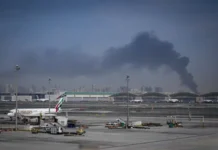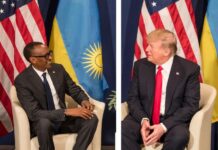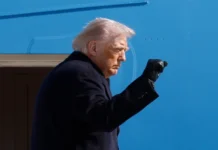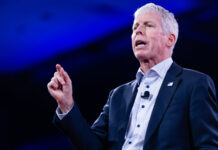
Dozens of world leaders convened Thursday in the Amazonian city of Belém, Brazil, for a pre-COP30 climate summit aimed at reviving global cooperation on climate action, even as the world’s biggest polluters were notably absent.
The two-day gathering brings together 53 heads of state and over 40 regional and subnational leaders, as Brazil prepares to host COP30, marking 30 years of global climate negotiations under the United Nations framework.
Despite modest progress over the decades, scientists warn that current efforts remain far from sufficient to avert catastrophic global warming in the coming decades.
Among the attendees are U.N. Secretary-General António Guterres, French President Emmanuel Macron, and U.K. Prime Minister Keir Starmer. However, the leaders of China, the United States, India, and Russia, four of the world’s top five greenhouse gas emitters, are missing from the talks.
Only the European Union is represented at the highest level.
The absence of the United States, whose current administration has downplayed climate change, has drawn mixed reactions. Some participants believe it could create room for more equitable dialogue.
“Without the U.S. present, we can actually see a real multilateral conversation happening,” said Pedro Abramovay, vice president of programs at the Open Society Foundations and a former Brazilian justice minister.
“This opens space for a multilateralism that isn’t dictated from the top down by powerful nations.”
Brazilian President Luiz Inácio Lula da Silva, who has positioned environmental diplomacy at the center of his foreign policy, is hosting a series of bilateral meetings on the sidelines.
On Thursday, he was set to meet Macron and Starmer, following earlier talks with China’s vice premier and leaders from Finland and the European Union.
The summit also saw renewed efforts to cut methane emissions, a potent greenhouse gas responsible for a large share of global warming.
Former New York City Mayor Michael Bloomberg announced a $100 million investment to enhance methane monitoring using satellite networks and support emission-cutting policies in countries such as Australia, Indonesia, Mexico, and Nigeria, as well as U.S. states including California and New Mexico.
“Ten years on from the Paris Agreement, we now have the technology and international momentum to act quickly and effectively against coal and methane, the decisive front in the battle against climate change,” Macron said.
Despite a pledge made at COP26 in 2021 to reduce global methane emissions by 30% by 2030, emissions have continued to rise, underscoring the urgency of stronger enforcement and monitoring.
Another key focus is Brazil’s proposed Tropical Forest Forever Facility, a multilateral funding mechanism designed to protect endangered forests and support local communities. The initiative has drawn interest but limited financial commitment.
Brazil pledged $1 billion to the fund in September, with Indonesia matching that commitment last week. China has also indicated plans to contribute, though it has not disclosed an amount.
However, major industrialized nations have yet to announce contributions, and the United Kingdom confirmed Wednesday that it would not offer funding, despite helping to shape the program’s design.
As leaders deliberate in Belém, optimism remains cautious. Brazil hopes the summit will re-energize collective climate action and pave the way for more ambitious commitments when COP30 officially convenes in 2026, even if the world’s heaviest polluters are not yet at the table.
Source: Reuters
Written By Rodney Mbua


















